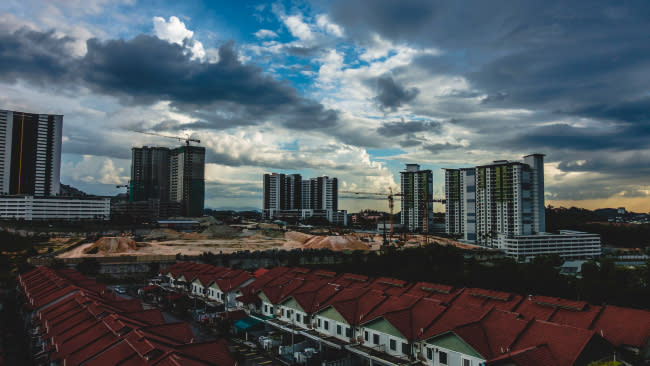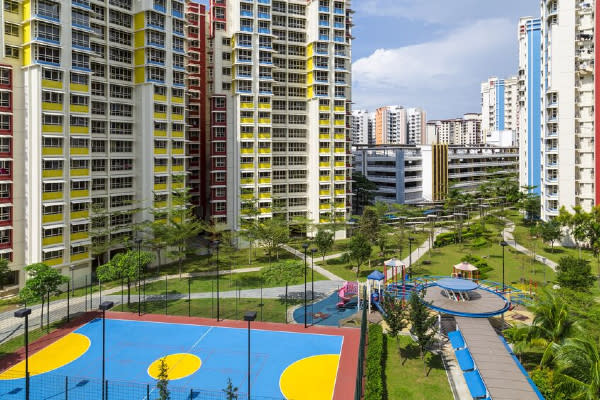Most Homes In Malaysia Unaffordable, Foreign Workers Banned In Residential Areas And, More

30th January – 5th February
Economists said most homes in Malaysia remain unaffordable for buyers even as residential properties dominated the real estate market during the third quarter of 2023.
Meanwhile, foreign workers will no longer be allowed to stay in residential areas within Negeri Sembilan.
1. Most homes in Malaysia unaffordable
Economists said most homes in Malaysia remain unaffordable for buyers even as residential properties dominated the real estate market during the third quarter of 2023.
Dr Mohd Afzanizam Abdul Rashid, Chief Economist of Bank Muamalat Malaysia Berhad, shared that residential properties made up 62.9% of the total property market share, with transactions worth RM28.4 billion, while the number of unsold properties fell from 36,863 units in Q4 2021 to 25,311 units.
Despite the positive outlook, he noted that the ‘median multiple approach, used to determine affordable housing prices at three times the median annual salary, indicated that the prices of homes in Malaysia are unaffordable, reported The Sun.
Mohd Afzanizam said many Malaysians face significant challenges in buying a home, particularly in urban locations like Penang, Johor Bahru and the Klang Valley.
Rahim & Co International Property Consultants Sdn Bhd agrees, saying that affordability remains a major concern among home buyers, reported The Star.
Sulaiman Akhmady Mohd Saheh, Research Director of Rahim & Co, believes this affordability issue could be resolved by transit-oriented developments (TODs).
“By integrating TOD principles, developers can create units that are not only affordable but also conveniently located near workplaces, facilities and amenities,” he said.
This makes it easier for Malaysians to buy a home, he added.
2. Foreign workers banned in residential areas
Foreign workers will no longer be allowed to stay in residential areas within Negeri Sembilan.
J Arul Kumar, Chairman of the Local Government Development, Housing and Transport Committee, said employers who are presently housing such workers in residential areas have until the end of the year to relocate them to centralised living quarters (CLQs) or commercial zones, reported the New Straits Times.
With this, a programme will be conducted in all residential areas to identify properties that are being used to house foreign workers.
The Labour Department and local authorities has set out several criteria for the construction of CLQs.
Notably, CLQs must be fenced, constantly monitored and equipped with basic facilities.
This is to ensure that the rights of foreign workers are “looked after and that they have a comfortable and safe place in which to live,” said Arul Kumar.
3. Selangor lifts blanket assessment tax exemption
The state government of Selangor will continue to provide assessment tax exemption for low-cost homes while introducing targeted exceptions for village properties this year.
Datuk Ng Suee Lim, Chairman of the Local Government and Tourism Committee, said the exemptions would be granted to villagers meeting the new conditions established by the state.
He revealed that the Selangor Executive Council (MMKN) has reviewed the existing blanket exemption since 2016 and agreed to make revisions for 2024, reported The Star.
Notably, the exemptions will be available to planned villages (kampung tersusun), fishing villages (bagan) and Chinese new villages that meet specific criteria.
These include the applicant being a Malaysian citizen living in Selangor, the property must have a built-up area not exceeding 2,000 sq ft and a household monthly income of below RM5,000 for married individuals.
Owners can apply for just one account or house.
The decision to impose tax on previously exempted properties is attributed to the state’s economic affairs as well as higher operational costs.
The state expects 310,740 properties to pay assessment tax at the present rate, generating RM45 million in revenue.
“We expect about half of the property owners to apply for the exemption,” said Ng.
4. Tribunal solved record 99.87% housing, strata cases in 2023
The year 2023 saw the Tribunal for Housing and Strata Management (TPPS) solve more housing and strata cases at 11,361 compared to 9,617 cases in 2022, according to Housing and Local Government Minister Nga Kor Ming.
This works out to 99.87% of the total cases received last year, setting a record high for the ministry, reported Malay Mail.
Of the total cases, 10,030 involved strata management issues and 1,331 involved claims of home buyers, said Nga.
He pointed that 1,500 cases were filed via the Electronic Tribunal Strata Management System (e-TPS) starting from its launch in September 2023 to December 2023.
With the e-TPS, it has become easier for the public to file their claims, allowing them to save on time and cost.
5. Real estate market’s growth to continue, albeit at a slower rate this year
Despite the upcoming hike in Sales and Service Tax (SST) rate from 6% to 8% from 1 March, Rahim & Co International Sdn Bhd expects Malaysia’s real estate sector to sustain its growth in 2024.
Notably, the sector’s robust performance in 2022 and 2023 is forecasted to spill into 2024, albeit at a slower pace.
Sulaiman Akhmadi Mohd Saheh, Director of Research and Strategic Planning at Rahim & Co, acknowledges a potential knee-jerk reaction to the higher SST rate, but anticipates normalization and positive market growth in the second half of the year, reported The Sun.
On the real estate market’s outlook for this year, Rahim & Co sees opportunities for affordable landed homes and the appeal of high-rise developments with transit stations to homebuyers and investors.
Despite concerns on high prices, residential demand remains strong, with continued shifts in design, locality and prices.
Meanwhile, policy-based enablers like the revised Malaysia My Second Home (MM2H) programme and the Residential Tenancy Act are key to attracting more foreign buyers and boosting the rental market.



